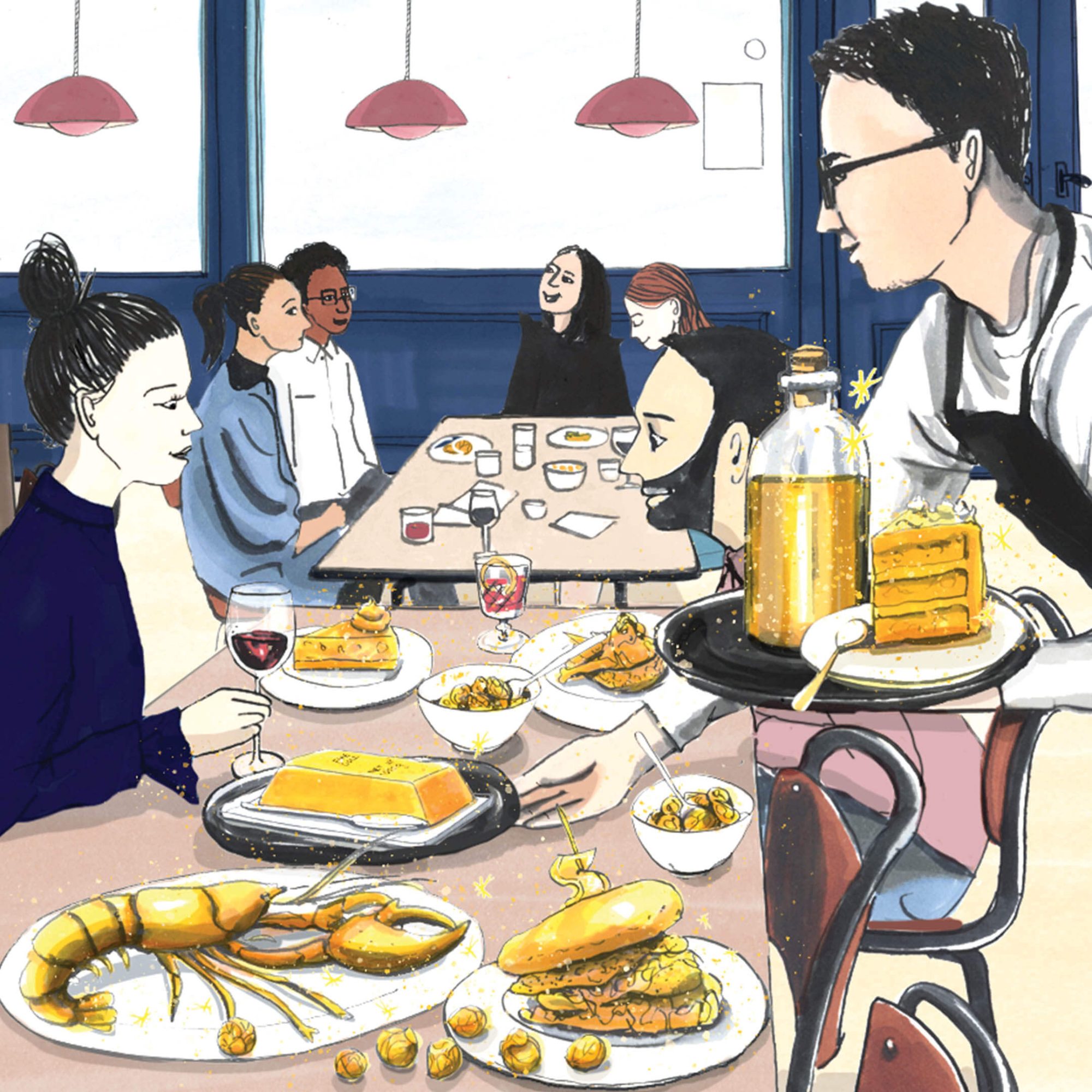
Forget the foie gras — next time you dine out, the most expensive ingredient in your meal might be the canola oil used to cook it. The humble canola oil used to prepare many dishes has risen in cost so significantly, it’s no longer an afterthought for restaurants — Sylvia Cheverie, one of the owners of Chartier, says the cost of canola oil has fluctuated so much, that she’s paid up to $80 for the same amount that used to run $20 less than two years ago. The rising costs of ingredients, supply chain and environmental issues, unpredictable consumer habits and inflation have forced restaurant owners to make difficult decisions about what to do to offset these increases and attempt to stay in business.
For Chartier, these challenges mean raising prices and revising its menu. “We were losing money on every single table that came in, and it just wasn’t sustainable,” Cheverie says. “Crops we had been able to rely on like Yukon Gold potatoes were all of a sudden coming back diseased and unusable and we had to raise prices for something as staple as a potato.” Lobster poutine — a beloved staple of the menu since day one — was removed because Chartier would have needed to increase the price from $75 to “well over $100” in order to make a sustainable profit margin.
In August 2022, Chartier’s owners wrote a message on the restaurant’s website titled “Crisis Prices” to explain the increases to their customers. “We wanted to have a really open and honest conversation and make sure that our guests understood the ‘why’ behind some of the changes,” Cheverie says. “They were very grateful for the authentic conversation and that we didn’t just adjust portions or prices without saying anything. To this day, at the bottom of our menus it explicitly states that our prices are higher than we’d like them to be, and why. As uncomfortable as it can be for people to see these prices, I promise it’s just as uncomfortable for us to charge it.”
Chartier continues to source food from local producers, as turning to cheaper ingredients was not an option the owners considered. “We are not willing to sacrifice our values just to make a profit,” Cheverie says. “Maybe that’ll be to our detriment, but we believe that we should be supporting local and making things from scratch and using ingredients that have been ethically raised and grown. I want our customers to know that every dollar they spend here is affecting the future for multiple families and businesses and farmers. There’s a ripple effect and their spending power has to make change in the community that is closest to them.”

Likewise, Jeff Nachtigall, one of the owners of Sugared & Spiced Baked Goods, is committed to serving quality goods despite the rising costs of ingredients.
“Our products are pretty basic and are made with very few ingredients, so we don’t take shortcuts in order to give customers the best product made by trained experts,” Nachtigall says. “We get eggs delivered from a farmer every week. We use butter, not oil.” But that commitment is costly — Nachtigall estimates he spent an additional $5,000 on butter alone in 2022 when the price jumped from $3.10/lb to $4.99/lb. “All of our expenses went up in 2022, and for the first time in six years we are maxing out our two business credit cards.”
Instead of looking for places to cut costs, Nachtigall and his wife and co-owner, Amy, consistently extend store hours and work long hours to accommodate more orders. They even gave their two full-time employees pay increases. “They are so good at what they do and if they leave, our business would fall apart immediately,” Nachtigall says. “It’s not worth the savings to risk that. I want them to know they’re valuable and enjoy themselves at work, and that means regular raises. I’m not a business person, I’m a hospitality person and trying to keep all costs down doesn’t work with our philosophy.”
But being willing to accommodate more orders didn’t work when there were no orders coming in. When Nachtigall was afraid Sugared & Spiced might need to close before the end of 2022, he “impulsively” posted a message on his personal Facebook page in early December revealing the uncomfortable reality of many small businesses, and just how close his bakery was to closing.
“I didn’t know if we’d have enough money on December 23rd to pay all our expenses,” Jeff says. But the Facebook message led to a Christmas miracle and Sugared & Spiced had its best December ever, with revenue 15 per cent higher than its previous best December. “We ended up breaking even for the year, but we nearly killed ourselves working because we needed the sales. It really brought to light the kind of precarious position we’re in.”
Sugared & Spiced isn’t the only food establishment one bad month away from closure. In January 2023, Noma — the Copenhagen spot considered one of the best restaurants in the world — announced its plan to close. “The math of compensating nearly 100 employees fairly, while maintaining high standards, at prices that the market will bear, is not workable,” owner René Redzepi told The New York Times.
If even a world-famous restaurant is struggling, just imagine what small businesses in Edmonton are going through. “The entire food and beverage industry is teetering on the edge of disaster,” Cheverie says. “Restaurants have a 10 per cent profit margin if everything is running splendidly, and that rarely happens, so it’s usually closer to a two to five per cent profit margin. We had a lot of challenges pre-pandemic, and now the aftermath has really stretched these issues.”
At Otto Food and Drink, owner Ed Donszelmann is willing to do anything to keep his restaurant open—even if that means paying for costs out of his own pocket. The Sautéed Brussels Sprouts are a guest favourite, and remain around $10 despite the price of brussels sprouts having more than doubled in the past six months. “We can’t charge $20 for a little bowl of brussels sprouts, but I never want to take it off the menu so I am eating those costs,” Donszelmann says. “I can’t increase the price of most of our dishes without making it unreasonable for customers, and our menu is pretty small so there’s not a lot to take off. In most cases, I’m just paying for the costs out of pocket.”
While Donszelmann’s approach might not seem sustainable, he is optimistic things will turn around with community support. “Otto has become too important to me, to the community. It’s a meeting place for all Edmontonians in an inner-city neighbourhood. My approach is to try and keep prices fair, but get more people into the restaurant.”
For all three places, unpredictable consumer habits have been challenging since COVID restrictions lifted. The usually reliable holiday season was less consistent in 2022, and lately the effects of inflation on everyday spending have become an additional concern.
“People are nervous about rising costs in all aspects of their lives and are eating out less,” Donszelmann says. “Consumers are seeing cost increases at the grocery store the same way I see the price of ingredients increase, so I understand their worries.”
“With inflation, everyone is scared and in survival mode,” Nachtigall says. “They’re wondering if they’ll be able to pay rent and utilities next month. But every once in a while, if they can ignore reality, then they might come buy a cake.”
Like this content? Get more delivered right to your inbox with Ed. Eats
A list of what’s delicious, delectable and delightful.
This article appears in the March/April 2023 issue of Edify







